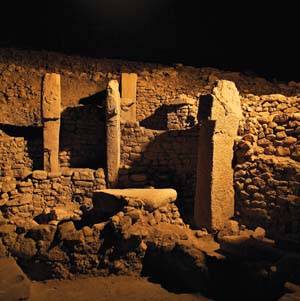According to Daniel Dennett there are (unnamed) sceptics out there who question the very existence of memes. I doubt that. 'Meme' is simply a name for ideas and techniques. Who would wish to deny that there are lots of ideas around and about, and many set ways of doing things? The issue, rather, is whether the notion of memes helps us to understand how and why ideas and techniques rise and fall and spread. True ideas and useful techniques do not seem to pose much of a problem. Most hunters presented with rifles quickly got rid of their bows and arrows. But why do bad ideas catch on? It is not so obvious why former hunters from Alaska to Australia converted to Christianity. This example comes to mind because meme theorists seem to agree that the worst meme of all is the belief in a God. In fact one central aim of meme theory is to explain why such an illogical and dangerous idea has shown so much staying power.
So let us agree that memes exist and that some rotten ideas and dangerous techniques survive and even flourish. What really matters are the explanations offered by meme theorists to account for this mysterious fact. Are we supposed to believe that memes have a life of their own? That their destiny depends on their innate talent for reproducing themselves? That only the fittest memes survive? (And if so, what is the test of reproductive success, or even fitness?)
"The survival value of the god meme in the meme pool results from its great psychological appeal," Richard Dawkins wrote in The Selfish Gene. "It provides a superficially plausible answer to deep and troubling questions about existence. It suggests that injustices in this world may be rectified in the next." For Dennett a religious idea is rather like a parasitic worm, which we host even though it gives us no obvious benefits at all, and may even end up killing us.
Either way, neither Dennett nor Dawkins seems to know (or care) much about any specific religion. There are lots of different ideas about gods in the world (and some of them can only be translated by our word 'god' with some difficulty). Is a belief in the God of the Old Testament the same sort of meme as belief in Zeus and company, or belief in Krishna, or faith in Buddhism, which does without gods altogether?
But even if we specify religious ideas rather more precisely than Dawkins or Dennett, they are not free-floating, independent entities. Unlike genes and viruses and parasites, religious ideas are not particulate. An idea about a god cannot be separated from other ideas with which it is linked in a particular religion, such as creation, or incarnation, or reincarnation, or divine retribution. Some gods watch over us. Others wash their hand of us. Moreover, religious ideas operate within an institutional matrix, sustained by seminaries, prayer books, holy days, rituals, churches, and so on. And these in turn are often bolstered by the power of the state.
Studies by anthropologists show that the power of ideas and practices depend on their setting, in particular on the part they play in an intricate network of relationships between people, things, places, symbols, and other ideas.
A former president of the British Humanist Association, the anthropologist Sir Edmund Leach, became provost of King's College Cambridge in 1966. Some optimists may have hoped that he would turn King's College chapel into a museum of dead religions, but in fact he came rather to enjoy the college rituals. However, he remained an anthropologist, and he was struck by a curious fact about the central annual ritual of the college, Founder's Day.
Various ritual performances took place in different parts of the college, but Leach discovered that there was no master programme, and that nobody knew the whole Founder's Day ritual. As provost he was instructed by various temporary guides to do this and that as the day progressed. The college porters knew certain things that had to be done, some of the older college fellows were expert in certain other parts of the performance, the chaplain could be relied upon to do his bit, as could the choirmaster, the chef had his notes on what was to be served at the Founder's feast, and so on. But nobody could lay out the whole programme for the day.
If there was no single programme for the ritual, and no centre of ritual authority, it was unlikely that this complex performance expressed a single message. Leach decided it was worth an ethnographic study, but he was warned off by a group of senior college fellows. They wanted Founder's Day to remain a bit of a mystery. Perhaps they believed – or hoped – that it kept up ancient traditions which linked the living members of the college with their distinguished predecessors.
It is also plausible that because various constituencies within the college each controlled a piece of the ritual, they were forced to recognise their mutual dependence, and that this is what the ritual achieved, and so why it carried on.
In either case it would be dangerous to publish the full script of the ritual for all to see, or to investigate its origins (which might turn out to be merely Victorian, like most British rituals).
What are to be counted as memes or viruses or parasites in this package of rituals, relationships, communal meals and choral performances? What is the big idea?
In any case, ideas are not independent gene-like entities, much less parasites. They are attached to symbols and institutions. Their power and endurance have to do with the social status and resources of those who propagate them. Darwin may be right and Moses may be wrong, but biological metaphors don't help us to understand the social history of beliefs and practices.
Adam Kuper is Professor of anthropology at Brunel University

